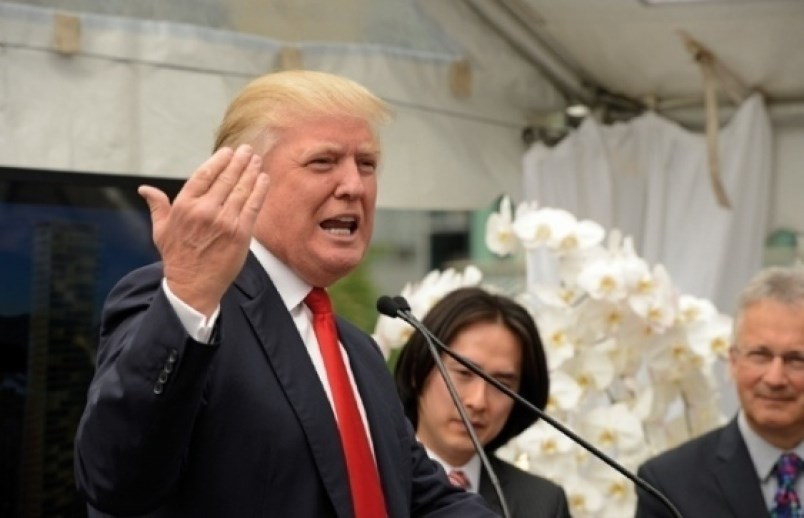There's a brand new dance but I don't know its name
That people from bad homes do again and again
It's big and it's bland full of tension and fear
They do it over there but we don't do it here
— David Bowie, Fashion, 1979
Last Tuesday night, I parked my butt on a barstool and watched slack-jawed as the U.S. election results rolled in on a big-screen TV. Inconceivably, Thing One was trumping Thing Two. By the time I stumbled home it was game over: Lady Macbeth had lost to a former reality TV star with an Art Deco 'do and 70 active lawsuits against him.
One thing you can say about Donald Trump: he and his successful train wreck campaign have been yuuugely fascinating. Morbidly, perversely... but fascinating nonetheless.
“Fascinate” means to bewitch or enchant. It originates from the 15th century Latin fascinus, meaning "a charm, enchantment, spell, witchcraft.” It was once believed that witches and serpents could render one unable to move or resist through a spell or a mere gaze. According to the Century Dictionary, “To fascinate is to bring under a spell, as by the power of the eye; to enchant and to charm are to bring under a spell by some more subtle and mysterious power.”
News watchers were spellbound by the media’s fixed focus on Trump’s dickish exploits and outrages, any one of which would have been enough to sink a traditional candidate from either party. Yet the Rethuglican candidate was nothing of the sort, unless you consider sexual harassment and an endorsement from the Ku Klux Klan to be “traditional”. The press couldn’t look away, and neither could the rest of us.
In any case, once you start investigating word origins, there’s no telling where you’ll end up. A word closely related to fascination, with its associations of spells, paralysis and power, is the f word: fascism.
Fascism is drawn from the Latin noun, fasces, meaning “a bundle of rods containing an axe with the blade projecting.” A Roman magistrate would carry these before him as a symbol of violent authority: “the sticks symbolized punishment by whipping, the axe-head execution by beheading. Hence in Latin it also meant, figuratively, "high office, supreme power," according to the Online Etymological Dictionary.
The Italian fascists explicitly took their name from fasces. A perched eagle clutching a fasces was a common symbol used on their uniforms. The British Union of Fascists also employed the image in the 1930s.
Columbia University historian Robert O. Paxton defines fascism as “a form of political behaviour marked by obsessive preoccupation with community decline, humiliation or victimhood and by compensatory cults of unity, energy and purity, in which a mass-based party of committed nationalist militants, working in uneasy but effective collaboration with traditional elites, abandons democratic liberties and pursues with redemptive violence and without ethical or legal restraints goals of internal cleansing and external expansion.”
Needless to say, American immigrants are not the only ones now worried about the rise of domestic fascism in the U.S. (Whether or not Trump abides by his protectionist “principles” and projects military violence into the world, a la Clinton/Obama, is another matter.)
Tellingly, fasces are all over American iconography. There are two fasces on either side of the U.S. flag behind the podium in the United States House of Representatives. Fasces decorate the base of the Statue of Freedom on the United States Capitol building. The National Guard employs the image as well.
You can read as much or as little into this as you like into this, as either symbolic acknowledgement of America’s violent underpinnings or irrelevant decorative fashion. Yet fashionitself is a word lexically related to the terms above. According to the Online Etymology Dictionary, the word has roots in the latinate term for a "group of people acting together," from facere, "to make.”
In a 1979 song, David Bowie drew a comparison between mass trends and totalitarian movements. Was he consciously working a lexical link between fashion and fascism? I don’t know, but his invocation of fashionistas marching in lockstep is both danceable and disturbing. A David Duke campaign song for 2020, perhaps?
Fashion!/Turn to the left/Fashion!/Turn to the Right/Fashion!/We are the goon squad and we're coming to town/Beep-beep! - David Bowie, Fashion



